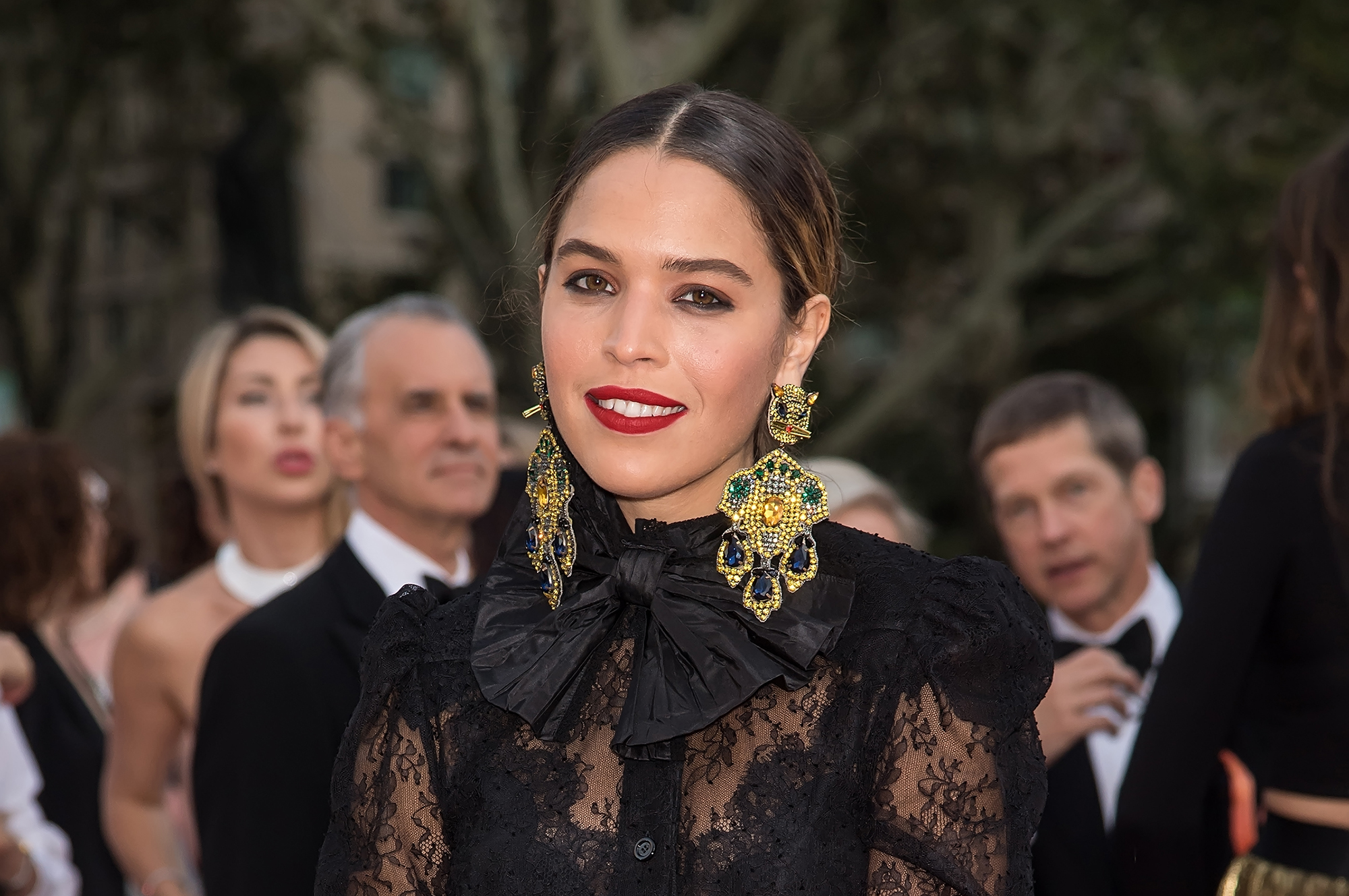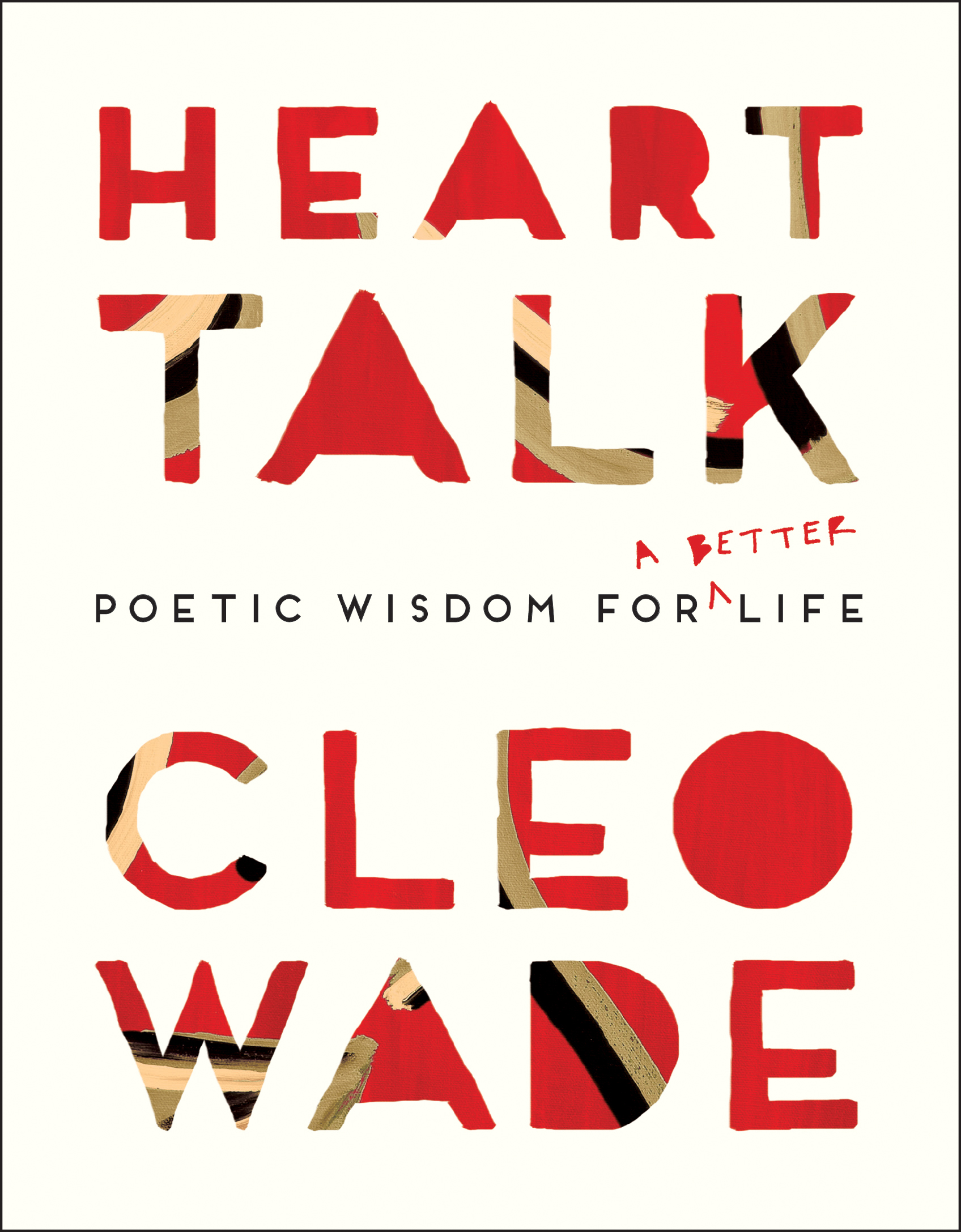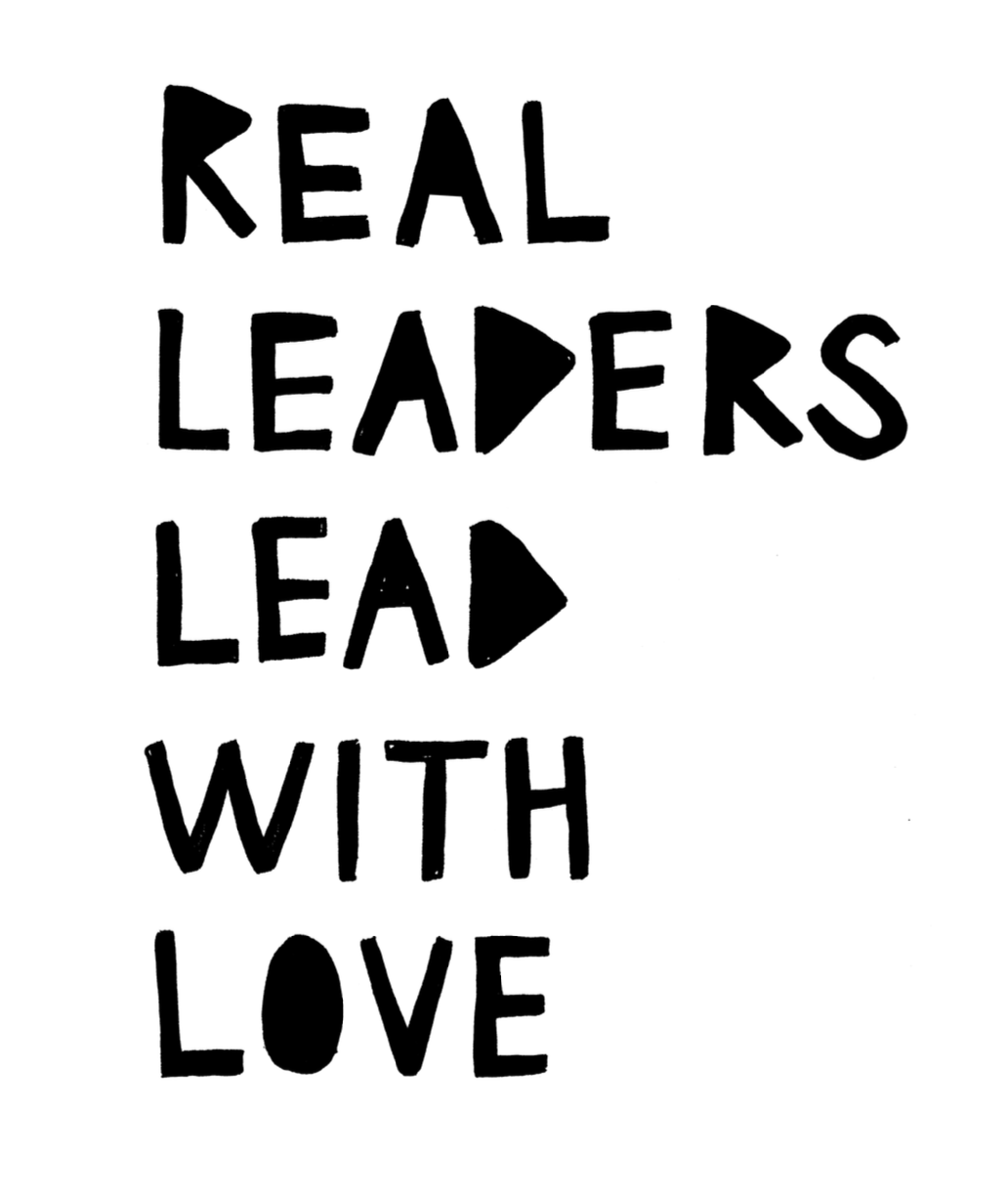
If you want to know why Cleo Wade has become the poet of her generation, look no further than Instagram. Her 350,000-plus followers eagerly post shots of her affirmational poems with captions like “Positive vibes only” or the prayer hand and heart emojis. In fact, it’s nearly impossible to scroll through any social media feed without seeing images of Wade’s sage poetry, usually hand-written in her trademark all-caps style, or Wade herself, speaking about self-love during a TED talk or sharing her thoughts on social issues alongside celeb friends like Yara Shahidi.
“Be yourself. I love you like that.”
“Don’t let your old hurt get in the way of your new love.”
“Stop worrying about what you should do — get to work on what you can do.”
These are just a few examples of the self-empowering phrases that are resonating with so many and have led Wade to be dubbed the “Millennial Oprah.”
The rising literary star has now released her first book, Heart Talk: Poetic Wisdom for a Better Life, and has some thoughts on why her voice fits so seamlessly into the current wave of feminism and the #MeToo era.

How do you view your role as an artist and an activist?
As Nina Simone says, an artist’s job is to reflect the times. Right now, the words that are popping up on protest signs, the tops of graduation caps, Instagram and billboards, reflect a collective feelings. I think that activism is really organized storytelling and I tell stories through poetry and visual representation. So for me, as I was writing Heart Talk, I didn’t want it to just look beautiful, I wanted it to be useful and a tool. Whenever I write anything, or make anything or put anything in a creative art installation, I ask myself, “What does this do?”
How do you think activism has changed and evolved in the age of social media?
It’s so incredible how you are able to find your tribe and the people you believe in, but it’s important to remember that the online world isn’t the answer to connectivity, it’s the launch pad. In terms of creating change, we do have to live beyond the click. It’s not about invalidating connecting online, it’s about furthering it.
It’s important to make sure the balance is right, and that we are critically looking in the right place at the right time for the right connection in order to get things done in terms of activism.
You’ve been vocal in the past about practicing everyday activism — how do you define that?
I think it’s important to define everyday activism with a spirit of flexibility. To me, activism is doing what you can with what you’ve got, and in your own way. You can always ask yourself, what do I have today, where am I today, and what can I do with it? Sometimes that can be making sure you ask your neighbor how they’re doing, or it can be how you give your time or money to something. My advice for young people is to never let your inability to do everything get in the way of your ability to do something.
How we can ensure movements like #MeToo and Black Lives Matter create real change?
Sometimes, what ends up happening when moments feel dire is that we end up thinking that we need to reinvent the wheel. It’s important to remember that even if you have an idea for how to change something or if you’re just finding out about an issue, you need to identify the people who have been working towards fighting this problem for a long time, and find ways to amplify the cause and their messages.
After Parkland, so many people were supporting Everytown, but there are so many black and brown people in inner cities who have been working to get guns out of the streets for a long time. So it’s important that when we have our “Aha!” moments to dive deep into the issue, and find the people that have been and are doing the work.
Why do you think your poetry is striking a chord with so many people?
Poetry has always held a special place in American culture. That’s why President Kennedy invited Robert Frost to recite a poem at his inauguration. When we think about the movements that were happening in the 1960s, there’s a parallel with what’s happening now, and poetry plays an important role in these times.
There‘s been so much fear and uncertainty, especially with this last election, and people are looking for things, whether it’s songs or poetry or the arts, to just help them. Art is important because you can’t change laws or policy without first changing hearts and minds. And usually art can do the best job of that.

Did you expect your words to inspire so many people?
There’s a page in my book that says, if you give anyone or anything the ability to make you feel that you’re on top of the world, you give it equal ability to make you feel like the weight of the world is on your shoulders.
Every time I pick up a pen or a paintbrush, my promise to my audience is that no matter where you are or whatever you feel, know that I am looking for you, know that I’m writing for you, know that these words are for you. Then I have a promise that I keep to myself and to my life, which is to be a storyteller. I think there are three pillars of storytelling: bravery, authenticity and vulnerability and my promise to myself is to live in those three pillars.
How do you stay inspired?
I’m inspired by people, whether that’s my friends, my family, my neighbors or people I meet on the subway. I don’t think you can be good at writing about feelings or emotions if you’re not a good listener. So I try to have a really good practice of compassionate listening. It’s what inspires my work the most, and where most of my work stems from.
Why is self-care and self-love so important?
First we have to look at the interconnected relationship between self-care and self-love. I think most of us are looking for love from another being, but we have to remember that it’s really, really difficult to find or give love without first learning how to love yourself. Self-care is what really fuels that. It is also what fuels our ability to love ourselves and others in a way that is faith-based and not fear-based.
For women now especially, we have more agency than we’ve ever had before. It’s not just that the world is so exhausting, but we’re also able to know ourselves more freely than any other generation before, and ask, “What are my needs, really? How do I show care for myself, really?”’
This interview has been edited and condensed.
More Must-Reads from TIME
- Cybersecurity Experts Are Sounding the Alarm on DOGE
- Meet the 2025 Women of the Year
- The Harsh Truth About Disability Inclusion
- Why Do More Young Adults Have Cancer?
- Colman Domingo Leads With Radical Love
- How to Get Better at Doing Things Alone
- Michelle Zauner Stares Down the Darkness
Write to Cady Lang at cady.lang@timemagazine.com